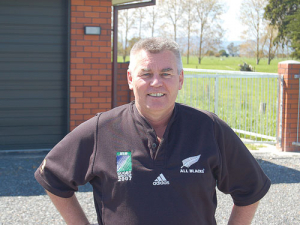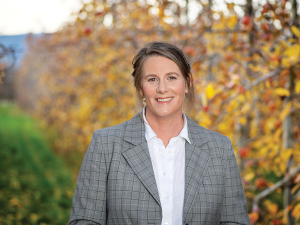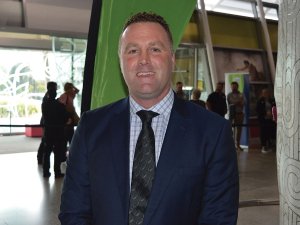But dairy farmers should feel “very proud’ of their achievements, he says.
A notion is gaining ground that some younger dairy farmers do not now feel proud to be dairy farmers in mixed company, Townshend says.
“This is against the backdrop of an election process where political parties on the left used farmers, in particular dairy farmers, as political footballs.
“While undoubtedly farmers have an important role in protecting our NZ environment, the issue is far wider than just farming. Nonetheless this wider attack has affected some farmers personally. And older farmers... winding back the clock see some similarities.”
Reflecting on 1988, in his younger days of farming, Townshend distinctly remembers the “demeaning process” of then prime minister David Lange, who said on television that dairy and sheep farming were sunset industries -- that sheep and dairy farmers got what they deserved for not diversifying to goats, deer and kiwifruit.
The remarks were made during a cyclical downturn in commodity returns, in tandem with finance minister Roger Douglas’s removal of subsidies and a terrible winter when cyclone Bola hit in early autumn and farm conditions were still unseasonably wet through to October.
“The Douglas reforms were necessary, but unluckily they coincided with other headwinds at that time,” says Townshend. “I clearly remember the negative feeling farmers had in being unfairly singled out by the prime minister.
“The positive part of the story is that from that adversity emerged a generation of farming entrepreneurs who have grown successful agribusinesses and some who have become industry leaders.”
Townshend has a message for younger farmers: don’t get disheartened or sidetracked by politicians and their misguided attacks.
“As young dairy farmers, numerically you may be a minority but your contribution to NZ is significant. You can let popular misconceptions eat you up, or you can stand tall and be proud of what you contribute.
“Part of the reality, if you stand proud, is that you must ‘walk the walk’ in meeting the operational and environmental standards that are good practice and expected by NZ.
“And the comfort that comes with age is that it is easier to shrug off ill-informed comments by the masses.”
Eight reasons why you should feel proud
Mark Townshend lists eight reasons why NZ dairy farmers should feel proud of what they do:
1 We live in a time “when many Kiwis have abdicated the responsibility to feed their families to a small minority of food producers”. The average NZ dairy farm supplies milk and dairy products each year to feed 400 Kiwi citizens. And the quality of NZ milk and dairy products is second to none in the world.
2 The average NZ dairy farms supplies another 10,000 people globally with their dairy product nutrition.
3 NZ dairy farmers, via Fonterra and other innovative smaller firms such as Tatua and Synlait, have turned NZ grass-fed milk into a dynamic food category. In the 1960s NZ produced six basic milk products and sold them to five countries. Today the industry supplies dairy ingredients to at least 100 countries, and processors turn milk into “the most dynamic pharmaceutical and nutritional specialist foods known”.
4 NZ dairy farmers are not the sole reason for NZ’s economic prosperity when measured against the best developed countries. “But the three most significant contributors to NZ’s increased competitiveness over the last 20 years are a stable, corruption-free government and business environment under the leadership of Clark, Key and English, and strong growth in the tourism and dairy sectors.”
5 NZ dairy farmers are resilient and determined business people. During the 2014-15 and 2015-16 dairy seasons of low international milk prices, at least 90% of dairy farmers would have had negative cashflows for fully two years. “Would any other sector of NZ business have been able to weather such an economic storm? The drop-out rate of farmers through this severe period was minimal.”
6 Farmers, in particular dairy farmers, have a large responsibility to protect our environment. Maybe this recognition has come later than it should have. If we have been polluters it has been through lack of knowledge of the consequences of our farming practices rather than any intent. Dairy farmers can stand tall knowing that they have invested more heavily than any other sector in recent times for environmental betterment.
7 Global climate change will attract increasing discussion. Opinions, causes and solutions will vary, but evidence suggests that the six-fold rise in world population over the last 200 years is changing our planet. “The issue is the number of people on earth, not the number of cows. While NZ has high methane and nitrous emissions per capita, it has low emissions per unit of food produced. NZ has the best and most efficient dairy farmers in the world, not because we are better people but because we have almost total revenue exposure to world milk prices.” If NZ reduces milk production, there is only one of two outcomes. Either people in the world go hungry or other countries replace our milk with a bigger carbon footprint.
8 Farmers should feel “rightly proud” of promoting irrigation schemes in NZ, often battling against the odds and when emotional Green propaganda stretches reality to the limits. For example, the Central Plains irrigation scheme in Canterbury, participating farmers pay significant financial dividends to NZ for health, education and pensions services all NZ citizens want and demand through tax and net GST revenue. This recent scheme has only positive impacts where a small portion of the water (less than 5%) that would normally flow straight to sea is diverted for irrigation.
The moment river levels reach a lower than required flow level, additional water is purchased and released from Lake Coleridge. The use of river flow water means hundreds of deep well bores drawing on aquifers become redundant. Taking dry-land drystock farming to a more intensive farming use multiplies jobs by 12 times, increases revenue by 12 times and delivers NZ substantially increased tax and GST funds to offer social services such as health and education.















